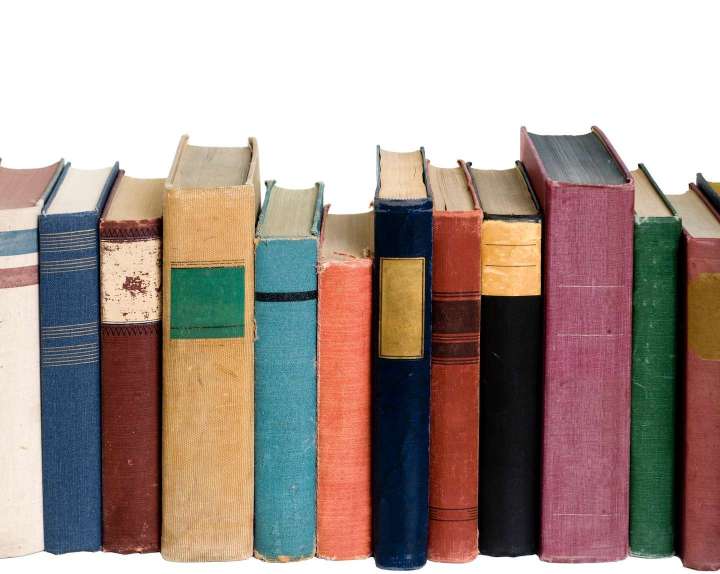I would love to know — but I don’t — what my four grandparents read. Because both of my parents were readers, I expect their parents were, too. One was a judge, another a fireman, the third a Latin teacher and one a homemaker. They all lived in Ashtabula, Ohio, and were all born in the last decade of the 19th century or the first decade of the 20th.
What I’m reading this summer

What I wouldn’t give to know what was on their bookshelves.
As for me, in this hot and worrisome August, I am listening to Winston Churchill’s “The World Crisis” and “The Gathering Storm,” perfect accompaniments to the unpredictability of world conflict.
My tastes have changed over time, but my favorite books through the years have much in common. From undergraduate days, I read Augustine’s “Confessions”, Richard Dawkins’s “The Selfish Gene”, Machiavelli’s “The Prince” and Montaigne’s “Essays”. In my frolic and detour years: Robert Blake’s “Disraeli” and “The Real War” by Richard M. Nixon. “War and Peace” and “Moby Dick” sustained me in my third year of law school — commitments everyone who has endured that experience will understand.
Thriller writer Robert Ludlum arrived on my radar somewhere in my 20s and swallowed hours of my time thereafter. So did John le Carré and anything by James Clavell. I later went down a Larry McMurtry rabbit hole, and barely escaped, after reading “Lonesome Dove”; another discovery was Evelyn Waugh’s “The Sword of Honour” trilogy, which turns on the moral complications of World War II.
Then, around 40, I read Churchill’s “History of the English-speaking Peoples” , a book that is now thumbed into crumbling pages and retaped bindings. I inhaled the first two volumes of William Manchester’s Churchill trilogy, “The Last Lion,” and somewhere in there crept “Trinity” by Leon Uris to make me feel guilty about my admiration of all things English.
But on I went. A taste for Charles Dickens arrived with middle age. “Bleak House” transported me so thoroughly that leisurely vacations since always include one Dickens book. In there, as well, was John Irving’s magnificent “A Prayer for Owen Meany” and his haunting “The Cider House Rules”. Along the way, too, was a lot of John Steinbeck, who I met first on paper and then again on audiobooks during rambles during the shutdown. Steinbeck might have made me a socialist if I’d read him when I was younger.
Bernard Cornwell’s 20-plus Sharpe novels and the Jack Aubrey novels by Patrick O’Brian taught me the outlines of the Napoleonic wars. Andrew Roberts’s “Napoleon: A Life” filled in the key facts. Peter Hopkirk’s “The Great Game,” which covers the European fight over Central Asia, still resonates. Lots of sports helped to change the scenery, including George F. Will’s wonderful “A Nice Little Place on the North Side: Wrigley Field at One Hundred” and Mark Frost’s superb “Game Six”, about the 1975 World Series.
Obliged to read Plutarch in high school, I came back to him after Colleen McCullough’s seven novels of the late Roman Republic. Same with “I, Claudius.” Much closer to home: Michael Shaara’s historical fiction about Gettysburg, “The Killer Angels” was the gateway drug to all of Bruce Catton’s nonfiction books about the Civil War; and then Doris Kearns Goodwin’s “Team of Rivals” and James M. McPherson’s “Battle Cry of Freedom.” I was very late to listen to Toni Morrison’s “Beloved,” but better to have listened to her read it than to have read it myself.
All praise to Jefferson, Lincoln said, but he might have added “and to audible books” had he known they were coming. They have made possible so much more reading as we drive and walk and exercise. “The Once and Future King” is a joy among many such listens. So was “The British Are Coming” by Rick Atkinson and the tragedy of James Garfield’s medical care in “Destiny of the Republic,” by Candice Millard. I have a weakness for such popular histories of medical calamities as Steven Johnson’s “The Ghost Map” (about cholera in England in the 1850s) and John M. Barry’s “The Great Influenza” (about the 1918 flu pandemic after World War I). But they helped me keep my wits through our own pandemic.
Fantasy epics such as “The Wheel of Time” by Robert Jordan and the Malazan Book of the Fallen series by Steven Erikson are long explorations of political theory and archetypes; memoirs by Dick Cheney (“In My Time”), William P. Barr (“One Damn Thing After Another”) and Donald H. Rumsfeld (“Known and Unknown”) recount the reality of statecraft and governance.
To laugh? Bill Bryson of course, and his “The Life and Times of the Thunderbolt Kid” — and to learn effortlessly what I could not grasp in high school: some science via “A Brief History of Nearly Everything.”
And the one book everyone ought to read who has lived the past quarter century: Lawrence Wright’s “The Looming Tower.”
My list is not for everyone, of course. But now my grandchildren won’t have to wonder as I did.






